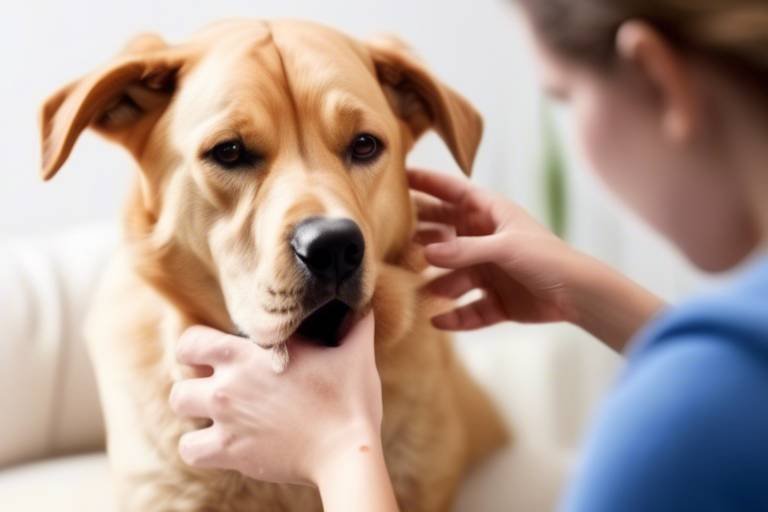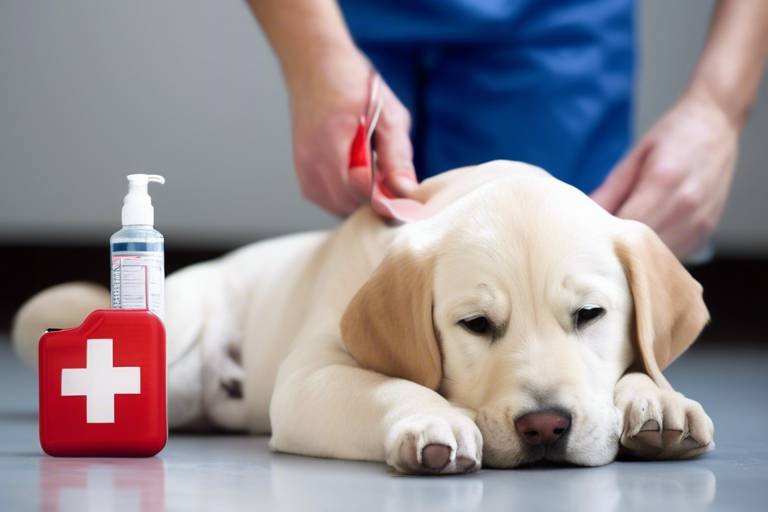Understanding Common Dog Breeds and Their Health Needs
Choosing the right dog breed can feel like navigating a maze. With so many options, it’s easy to get overwhelmed. Each breed comes with its own set of unique characteristics and health needs, making it crucial for potential dog owners to do their homework. After all, a dog isn’t just a pet; they become part of your family. This article aims to shed light on some of the most popular dog breeds, their distinct traits, and the specific health requirements that come with each one. By understanding these factors, you can make an informed decision that not only benefits you but also ensures a happy and healthy life for your furry friend.
When we think about dogs, we often picture loyal companions ready to greet us at the door with wagging tails and endless love. However, behind that adorable face lies a complex creature with specific needs. Just like humans, dogs can face health challenges that vary by breed. Some breeds are more susceptible to certain conditions, while others might require special care due to their physical attributes. For instance, breeds like Labrador Retrievers are known for their friendly demeanor, while Bulldogs are loved for their unique looks but can face serious health issues due to their brachycephalic structure.
Understanding these nuances is vital for dog owners. Imagine having a dog that requires a specific diet or exercise routine to thrive. How would you feel if you didn’t know this and your beloved pet started to suffer? That’s why this article will explore various breeds, focusing on their health needs, so you can provide the best care possible. Whether you're a first-time dog owner or looking to add another member to your family, this knowledge is invaluable.
In the sections that follow, we will dive into the health needs of specific breeds, discussing common health issues, preventive measures, and tips for maintaining your dog's well-being. From German Shepherds and their susceptibility to hip dysplasia to the adorable Beagles and their risk of obesity, each breed has its own story and set of needs. By the end of this article, you will not only be more informed but also empowered to make decisions that will positively impact your dog's life.
- What are the most common health issues in dogs?
Common health issues can vary by breed but may include hip dysplasia, obesity, and skin conditions. - How can I ensure my dog stays healthy?
Regular vet check-ups, a balanced diet, and appropriate exercise are essential for your dog's health. - Are certain breeds more prone to specific health issues?
Yes, different breeds have unique health challenges, so it's important to research before choosing a breed. - What should I do if I notice health issues in my dog?
Consult your veterinarian immediately for an accurate diagnosis and treatment plan.
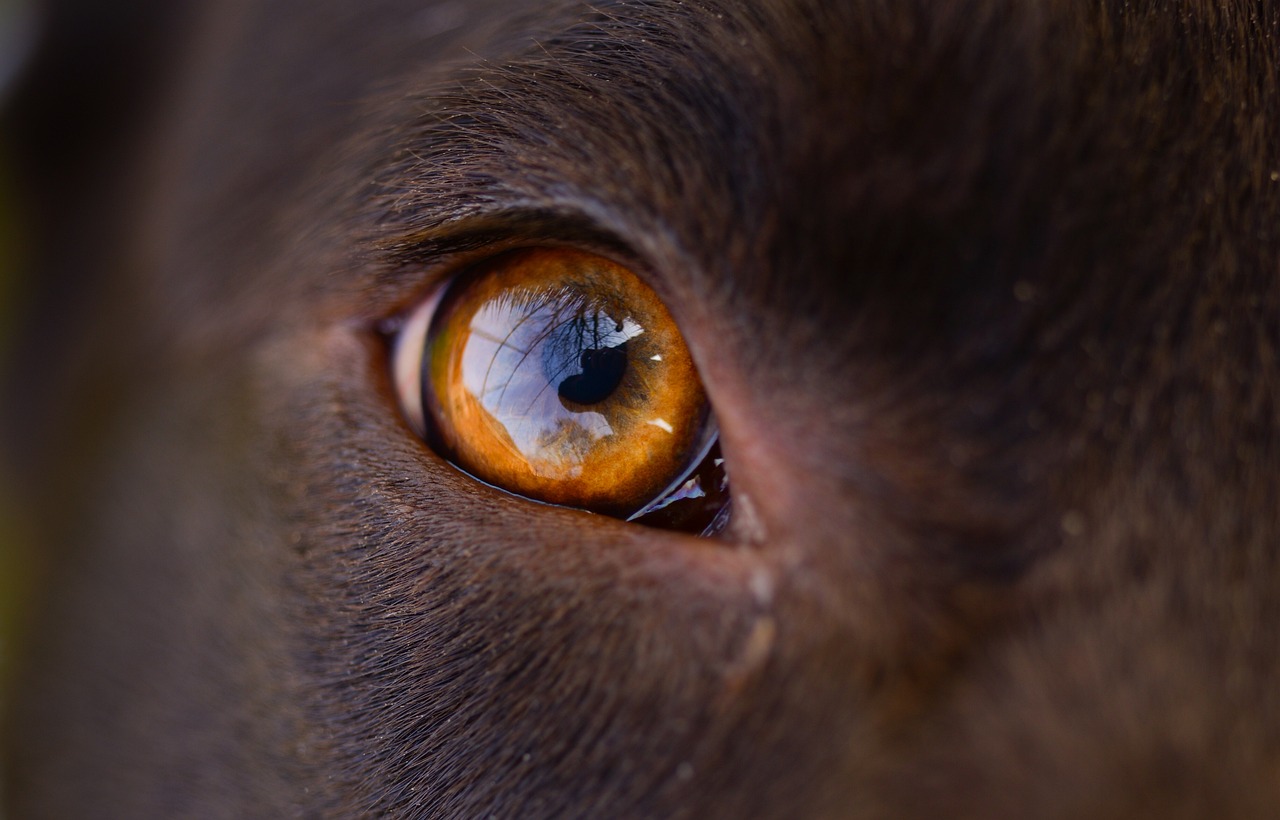
Labrador Retrievers
This article explores various dog breeds, their unique characteristics, and their specific health requirements, helping potential dog owners make informed decisions about breed selection and care.
are one of the most beloved dog breeds around the globe. With their friendly demeanor and boundless energy, they make excellent companions for families, singles, and everyone in between. But did you know that understanding their specific health needs can significantly enhance their quality of life? These dogs are not just playful; they also require a keen eye from their owners to ensure they stay healthy and happy. Let's dive deeper into what makes Labradors tick, including their health concerns and how to address them.
First off, it’s essential to recognize that Labradors are prone to certain health issues. This is not to say that every Labrador will experience these problems, but being informed can help you take preventive measures. Common health concerns in Labradors include:
- Obesity: Labradors love to eat, and this can sometimes lead to weight gain. Obesity can cause a myriad of health issues, including diabetes and joint problems.
- Hip and Elbow Dysplasia: These genetic conditions can lead to painful arthritis and mobility issues as your dog ages.
- Ear Infections: Their floppy ears can trap moisture and debris, making them susceptible to infections.
Now, you might be wondering, how can you keep your Labrador healthy? The answer lies in a combination of proper diet, regular exercise, and routine veterinary check-ups. Here are some actionable tips:
| Health Aspect | Recommended Action |
|---|---|
| Diet | Feed high-quality dog food tailored to their age and activity level. |
| Exercise | Engage in daily walks, play sessions, and mental stimulation activities. |
| Vet Visits | Schedule annual check-ups and vaccinations to monitor health. |
In addition to these proactive measures, it's vital to keep an eye on your Labrador's behavior and physical condition. If you notice any changes, such as decreased energy levels or unusual eating habits, don’t hesitate to consult your veterinarian. Remember, early intervention can make all the difference!
In conclusion, owning a Labrador Retriever is a rewarding experience filled with love and joy. However, as with any pet, they come with their own set of health needs that require attention. By being informed and proactive, you can ensure that your furry friend lives a long, healthy, and happy life.
Q: How often should I exercise my Labrador?
A: Labradors are energetic dogs that require at least 1 hour of exercise daily. This can include walks, playtime, and mental stimulation activities.
Q: What should I feed my Labrador?
A: A balanced diet of high-quality dog food appropriate for their age and activity level is crucial. Consult your veterinarian for specific recommendations.
Q: How can I prevent obesity in my Labrador?
A: Monitor their food intake, provide regular exercise, and avoid giving too many treats. Regular vet check-ups can also help assess their weight and overall health.
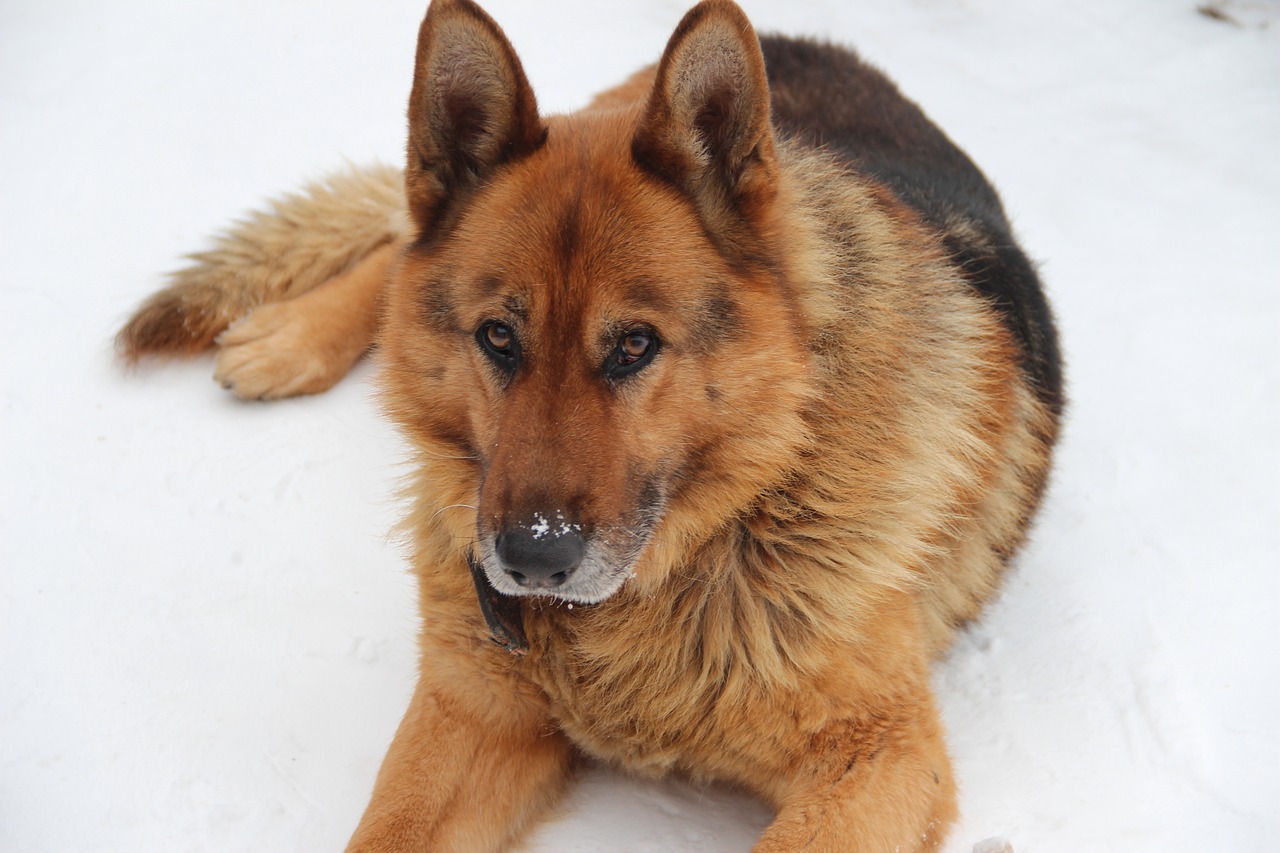
German Shepherds
This article explores various dog breeds, their unique characteristics, and their specific health requirements, helping potential dog owners make informed decisions about breed selection and care.
Known for their friendly nature, Labrador Retrievers are one of the most popular breeds. Understanding their health needs can ensure a long and happy life for these energetic dogs.
German Shepherds are not just intelligent; they are also incredibly versatile dogs that serve in various roles, from police work to therapy. Their loyalty and protective instincts make them excellent companions, but they also come with specific health needs that every owner should be aware of. Understanding these needs is crucial for ensuring a long, healthy life for your German Shepherd.
One of the most common health issues affecting German Shepherds is hip dysplasia. This genetic condition occurs when the hip joint doesn't fit into the hip socket properly, leading to joint pain and mobility issues. If left untreated, hip dysplasia can severely impact your dog's quality of life. Early detection and management are crucial, so regular vet check-ups are essential.
Recognizing the symptoms of hip dysplasia early can make a significant difference in treatment outcomes. Look out for signs such as:
- Limping or favoring one leg
- Difficulty standing or getting up
- Reluctance to exercise or play
- Changes in gait or movement
If you notice any of these symptoms, consult your veterinarian as soon as possible for an evaluation.
Preventing hip dysplasia is not entirely possible, but certain measures can help mitigate its impact:
- Regular Exercise: Keeping your German Shepherd active can strengthen their muscles and support joint health.
- Balanced Diet: A nutritious diet helps maintain a healthy weight, reducing stress on the joints.
- Weight Management: Keeping your dog at a healthy weight is crucial to prevent joint problems.
By following these preventive measures, you can promote overall joint health and enhance your dog's quality of life.
German Shepherds are also susceptible to various skin conditions. Their thick double coat can trap moisture and dirt, leading to infections or irritations. Understanding these issues is essential for proactive care. Regular grooming can help minimize the risk of skin problems, and a good diet rich in omega fatty acids can promote a healthy coat.
Beagles are known for their keen sense of smell and friendly disposition. However, they have specific health needs that require attention from their owners.
Beagles can easily become overweight, leading to various health problems. Monitoring their diet and exercise is vital to prevent obesity-related issues.
Due to their floppy ears, Beagles are prone to ear infections. Regular cleaning and veterinary check-ups can help prevent these painful conditions.
Bulldogs are beloved for their unique appearance and calm demeanor, but they face specific health challenges that owners should be prepared to manage.
Bulldogs often suffer from respiratory problems due to their brachycephalic nature. Understanding these issues can help owners provide better care and avoid potential emergencies.
The skin folds of Bulldogs can harbor bacteria and lead to dermatitis. Regular cleaning and veterinary advice are essential to prevent infections.
Poodles are highly intelligent and versatile dogs, but they also have unique health needs that require attention from their owners to ensure their well-being.
Poodles, especially larger varieties, can be prone to joint problems. Regular vet check-ups and appropriate exercise can help mitigate these risks.
Hypothyroidism is a common condition in Poodles, affecting their energy levels and weight. Regular health screenings can help in early diagnosis and management.
Q1: What is the average lifespan of a German Shepherd?
A1: German Shepherds typically live between 9 to 13 years, depending on their health and care.
Q2: How often should I take my German Shepherd to the vet?
A2: Regular check-ups are recommended at least once a year, but more frequent visits may be necessary for older dogs or those with health issues.
Q3: What are the best foods for a German Shepherd?
A3: A high-quality dog food that is rich in protein and low in fillers is ideal. Consult your vet for specific recommendations based on your dog's needs.
Q4: Can German Shepherds be left alone for long periods?
A4: German Shepherds are social dogs and can experience separation anxiety if left alone for too long. It's best to provide companionship or activities to keep them engaged.
Hip Dysplasia
Hip dysplasia is a serious concern for German Shepherd owners, as it is a hereditary condition that affects the hip joint's development. This malformation can lead to significant discomfort and pain, especially as the dog ages. Imagine trying to run a marathon with a pebble in your shoe; that's what it feels like for a dog suffering from hip dysplasia. The condition can manifest in various ways, and being aware of the signs can make a world of difference in your dog's quality of life.
Recognizing the symptoms early on is crucial. Common indicators include:
- Limping: This might be subtle at first, but if you notice your German Shepherd favoring one leg, it could be a sign.
- Difficulty standing up: If your dog struggles to get up after resting, this could indicate joint pain.
- Reduced activity: A sudden drop in energy levels or reluctance to engage in play can be alarming.
Early detection is key to managing hip dysplasia effectively. If you observe any of these symptoms, it is essential to consult a veterinarian as soon as possible. They can perform a physical examination and may recommend X-rays to confirm the diagnosis.
Fortunately, there are several preventive measures that can help maintain your German Shepherd's joint health. Regular exercise is vital, but it's essential to tailor the activity to your dog's needs. Overdoing it can exacerbate the problem, while a sedentary lifestyle can lead to weight gain, putting additional strain on the joints. A balanced diet rich in nutrients can also play a significant role in maintaining a healthy weight and supporting joint health.
In summary, hip dysplasia is a condition that requires awareness and proactive management. By understanding the symptoms and taking preventive measures, you can help ensure that your German Shepherd leads a happy and active life, free from the pain associated with this condition.
- What causes hip dysplasia in German Shepherds?
Hip dysplasia is primarily a genetic condition, influenced by factors such as rapid growth and obesity. Environmental factors can also play a role.
- Can hip dysplasia be treated?
Yes, treatment options include weight management, physical therapy, medications, and in severe cases, surgical interventions.
- At what age should I start monitoring for hip dysplasia?
It's advisable to begin monitoring as early as six months, especially if you have a breed predisposed to the condition.
Symptoms to Watch For
This article explores various dog breeds, their unique characteristics, and their specific health requirements, helping potential dog owners make informed decisions about breed selection and care.
Known for their friendly nature, Labrador Retrievers are one of the most popular breeds. Understanding their health needs can ensure a long and happy life for these energetic dogs.
German Shepherds are intelligent and versatile, serving in various roles. However, they are prone to certain health issues that owners should be aware of to maintain their well-being.
Hip dysplasia is a common condition in German Shepherds, leading to joint pain and mobility issues. Early detection and management are crucial for maintaining their quality of life.
Recognizing the signs of hip dysplasia in German Shepherds is essential for ensuring their comfort and mobility. Some of the most notable symptoms to watch for include:
- Limping: If your dog occasionally limps or shows reluctance to run, this could indicate discomfort.
- Difficulty Standing: Struggling to get up from a lying position or hesitating to jump can be a sign of joint pain.
- Reduced Activity: A noticeable decrease in playfulness or exercise can signal that something is amiss.
- Changes in Gait: Observe if your dog is moving differently, such as favoring one leg over another.
Noticing these symptoms early can make a significant difference in your dog's health. If you see any of these signs, it's essential to consult your veterinarian promptly. They can conduct a thorough examination to determine the underlying cause and suggest appropriate treatment options.
Regular exercise, a balanced diet, and maintaining a healthy weight can help prevent hip dysplasia in German Shepherds, promoting overall joint health.
German Shepherds are also susceptible to various skin conditions, which can affect their comfort and health. Understanding these issues is essential for proactive care.
Beagles are known for their keen sense of smell and friendly disposition. However, they have specific health needs that require attention from their owners.
Beagles can easily become overweight, leading to various health problems. Monitoring their diet and exercise is vital to prevent obesity-related issues.
Due to their floppy ears, Beagles are prone to ear infections. Regular cleaning and veterinary check-ups can help prevent these painful conditions.
Bulldogs are beloved for their unique appearance and calm demeanor, but they face specific health challenges that owners should be prepared to manage.
Bulldogs often suffer from respiratory problems due to their brachycephalic nature. Understanding these issues can help owners provide better care and avoid potential emergencies.
The skin folds of Bulldogs can harbor bacteria and lead to dermatitis. Regular cleaning and veterinary advice are essential to prevent infections.
Poodles are highly intelligent and versatile dogs, but they also have unique health needs that require attention from their owners to ensure their well-being.
Poodles, especially larger varieties, can be prone to joint problems. Regular vet check-ups and appropriate exercise can help mitigate these risks.
Hypothyroidism is a common condition in Poodles, affecting their energy levels and weight. Regular health screenings can help in early diagnosis and management.
Q1: How can I tell if my dog is overweight?
A1: Look for visible ribs, a defined waist, and consider consulting your vet for an accurate assessment.
Q2: What are the best ways to maintain my dog's joint health?
A2: Regular exercise, a balanced diet, maintaining a healthy weight, and routine vet check-ups are essential.
Q3: How often should I take my dog to the vet?
A3: Annual check-ups are recommended, but older dogs or those with health issues may need more frequent visits.
Q4: Are there any specific foods I should avoid for my dog?
A4: Foods high in fat, sugar, or artificial additives should be avoided. Always consult your vet for dietary recommendations.
Preventive Measures
This article explores various dog breeds, their unique characteristics, and their specific health requirements, helping potential dog owners make informed decisions about breed selection and care.
Known for their friendly nature, Labrador Retrievers are one of the most popular breeds. Understanding their health needs can ensure a long and happy life for these energetic dogs.
German Shepherds are intelligent and versatile, serving in various roles. However, they are prone to certain health issues that owners should be aware of to maintain their well-being.
Hip dysplasia is a common condition in German Shepherds, leading to joint pain and mobility issues. Early detection and management are crucial for maintaining their quality of life.
Recognizing symptoms like limping or difficulty standing can help in early diagnosis of hip dysplasia, allowing for timely veterinary intervention.
When it comes to preventing hip dysplasia and other health issues in German Shepherds, proactive care is essential. Regular exercise plays a significant role in keeping your dog fit and maintaining a healthy weight. Think of exercise as the magic potion that not only strengthens their muscles but also supports joint health. Aim for at least 30 to 60 minutes of physical activity each day, which can include walks, playtime, or even agility training.
A balanced diet is equally important. Feeding your German Shepherd high-quality dog food that meets their nutritional needs can help prevent obesity, which is a major risk factor for joint problems. Consult your veterinarian to determine the best diet plan tailored to your dog's age, size, and activity level. You might find it helpful to keep a food journal to monitor their intake and adjust portions as necessary.
In addition to diet and exercise, regular veterinary check-ups are crucial. These visits allow your vet to monitor your dog's overall health and catch any potential issues early on. Don't forget to discuss preventive measures like joint supplements, which can provide additional support for their joints. By incorporating these preventive measures into your routine, you can help your German Shepherd lead a long, active, and healthy life.
German Shepherds are also susceptible to various skin conditions, which can affect their comfort and health. Understanding these issues is essential for proactive care.
Beagles are known for their keen sense of smell and friendly disposition. However, they have specific health needs that require attention from their owners.
Beagles can easily become overweight, leading to various health problems. Monitoring their diet and exercise is vital to prevent obesity-related issues.
Due to their floppy ears, Beagles are prone to ear infections. Regular cleaning and veterinary check-ups can help prevent these painful conditions.
Bulldogs are beloved for their unique appearance and calm demeanor, but they face specific health challenges that owners should be prepared to manage.
Bulldogs often suffer from respiratory problems due to their brachycephalic nature. Understanding these issues can help owners provide better care and avoid potential emergencies.
The skin folds of Bulldogs can harbor bacteria and lead to dermatitis. Regular cleaning and veterinary advice are essential to prevent infections.
Poodles are highly intelligent and versatile dogs, but they also have unique health needs that require attention from their owners to ensure their well-being.
Poodles, especially larger varieties, can be prone to joint problems. Regular vet check-ups and appropriate exercise can help mitigate these risks.
Hypothyroidism is a common condition in Poodles, affecting their energy levels and weight. Regular health screenings can help in early diagnosis and management.
Q: What are the most common health issues in dogs?
A: Common health issues in dogs include hip dysplasia, obesity, ear infections, and respiratory problems, depending on the breed.
Q: How can I ensure my dog stays healthy?
A: Regular exercise, a balanced diet, routine veterinary check-ups, and proper grooming are key factors in maintaining your dog's health.
Q: Are certain breeds more prone to specific health issues?
A: Yes, each breed has its unique health predispositions. It's essential to research and understand these before choosing a breed.
Skin Conditions
German Shepherds, with their beautiful coats and striking appearance, are not just a joy to have around; they also require special attention to their skin health. These dogs can be susceptible to various that can impact their comfort and overall well-being. One of the most common issues is allergic dermatitis, which can arise from environmental allergens such as pollen, dust mites, or even certain foods. Imagine your furry friend scratching incessantly, looking for relief from the itch – it’s a situation that no pet owner wants to face.
Moreover, the breed is also prone to hot spots, which are localized areas of inflammation and infection on the skin. These can be triggered by anything from insect bites to excessive licking. It's essential to recognize and treat these hot spots quickly; otherwise, they can become painful and lead to more severe infections. Regular grooming and inspection of your dog's skin can help catch these issues early on.
To maintain your German Shepherd's skin health, consider the following proactive measures:
- Regular Grooming: Brush your dog at least once a week to remove loose fur and dirt, which can contribute to skin irritation.
- Bathing: Use a gentle, hypoallergenic shampoo to keep their skin clean without stripping away natural oils.
- Healthy Diet: A balanced diet rich in omega fatty acids can promote healthy skin and coat.
- Veterinary Check-ups: Regular visits to the vet can help monitor your dog's skin health and address any emerging issues promptly.
In conclusion, understanding and addressing the skin conditions that can affect German Shepherds is crucial for their happiness and health. By being proactive and attentive to their skin needs, you can ensure that your loyal companion remains comfortable and vibrant throughout their life.
Q: What are the signs of skin conditions in German Shepherds?
A: Look for signs such as excessive scratching, redness, swelling, or bald patches on the skin. If you notice any of these symptoms, it's best to consult your veterinarian.
Q: How often should I groom my German Shepherd?
A: It's generally recommended to groom your German Shepherd at least once a week, but during shedding seasons, you may need to increase the frequency to keep their coat healthy and reduce shedding.
Q: Can diet affect my dog's skin health?
A: Absolutely! A diet rich in essential fatty acids can greatly improve your dog's skin condition. Always consult your vet for the best dietary recommendations.

Beagles
Beagles are one of the most charming dog breeds out there, known for their keen sense of smell and friendly disposition. These little bundles of joy have a way of stealing hearts with their playful antics and adorable expressions. However, as a potential Beagle owner, it's crucial to understand that they come with their own set of health needs that require your attention. Just like a well-tuned engine needs regular maintenance, Beagles thrive when their health is managed proactively.
One of the most pressing health concerns for Beagles is their tendency to become overweight. With their love for food and a natural inclination to sniff out treats, they can easily tip the scales if not monitored closely. This is not just about aesthetics; obesity can lead to serious health problems such as diabetes, heart disease, and joint issues. Therefore, it’s vital to keep an eye on their diet and exercise regimen. A balanced diet, coupled with regular physical activity, is essential to keep your Beagle in tip-top shape. Think of it as keeping a garden healthy; it requires the right amount of sunlight (exercise) and water (nutrition) to flourish.
Another health issue that Beagle owners should be aware of is the risk of ear infections. Those adorable floppy ears, while contributing to their cuteness, can create a warm, moist environment that is perfect for bacteria and yeast to thrive. Regular ear cleaning is a must to prevent these painful infections. It’s similar to maintaining a clean home; neglect can lead to bigger problems down the line. Make it a routine part of your Beagle's grooming process, and you’ll save both of you a lot of discomfort and vet visits.
To help you better understand the specific health needs of Beagles, here's a quick overview:
| Health Concern | Description | Prevention |
|---|---|---|
| Obesity | Beagles are prone to gaining weight, which can lead to serious health issues. | Monitor diet and ensure regular exercise. |
| Ear Infections | Their floppy ears can trap moisture and bacteria. | Regular cleaning and vet check-ups. |
In summary, while Beagles are delightful companions, they do require a bit of extra attention to ensure their health and happiness. By staying vigilant about their diet and grooming, you can help your Beagle lead a long, vibrant life filled with wagging tails and playful barks. After all, a happy Beagle means a happy home!
Q: How often should I exercise my Beagle?
A: Beagles need at least 30-60 minutes of exercise daily to stay healthy and happy. Regular walks and playtime are essential.
Q: What should I feed my Beagle?
A: A balanced diet specifically formulated for their size and age is ideal. Consult your vet for recommendations tailored to your Beagle's needs.
Q: How can I tell if my Beagle has an ear infection?
A: Symptoms include frequent scratching at the ears, shaking their head, or a foul odor coming from the ears. If you notice any of these signs, consult your veterinarian.
Obesity Risks
When it comes to Beagles, their adorable, pleading eyes can sometimes lead owners to spoil them with treats. However, this can be a slippery slope towards obesity, which is a serious health risk for these delightful dogs. Just like humans, when Beagles pack on the pounds, they can face a myriad of health problems that can drastically affect their quality of life. Imagine a Beagle, once full of energy, now struggling to keep up during playtime because they’ve gained too much weight. It's heartbreaking!
Obesity in Beagles can lead to a range of issues, including diabetes, joint problems, and heart disease. These conditions not only shorten their lifespan but also diminish the joy they bring to our lives. To put it into perspective, carrying extra weight is like a human trying to run a marathon while wearing a backpack filled with rocks. It’s exhausting and detrimental to their health!
So, how can we keep our Beagle friends fit and healthy? Here are some key strategies:
- Portion Control: Always measure your Beagle's food. It’s easy to overfeed when you’re not paying attention!
- Regular Exercise: Daily walks and play sessions are essential. Aim for at least 30 minutes of exercise a day to keep those tails wagging and hearts healthy.
- Healthy Treats: Opt for low-calorie treats or even fruits and vegetables. Carrot sticks or apple slices can be a great alternative to high-calorie snacks.
By maintaining a proper diet and ensuring regular exercise, you can significantly reduce the risk of obesity in your Beagle. Remember, a healthy Beagle is a happy Beagle! Regular vet check-ups can also help monitor your dog’s weight and overall health, providing guidance tailored to your furry friend’s needs. After all, they depend on us to keep them safe and healthy!
Q: How can I tell if my Beagle is overweight?
A: A quick way to assess your Beagle's weight is to feel their ribs. If you can’t easily feel their ribs, they may be overweight. Additionally, a healthy Beagle should have a visible waist when viewed from above.
Q: What should I do if my Beagle is already overweight?
A: Consult your veterinarian for a tailored weight loss plan. They can help you adjust your Beagle's diet and exercise routine safely.
Q: Can I give my Beagle table scraps?
A: It's best to avoid giving table scraps, as many human foods are high in calories and can contribute to obesity. Stick to dog-specific treats and healthy snacks!
Ear Infections
Ear infections are a common issue for Beagles, primarily due to their unique ear structure. Their floppy ears provide a perfect environment for moisture and debris to accumulate, which can lead to infections if not managed properly. Just imagine a cozy, warm blanket that’s perfect for snuggling but can also trap unwanted germs – that’s what a Beagle’s ear can become without regular care!
Symptoms of an ear infection can be quite noticeable. You might see your Beagle shaking their head frequently, scratching at their ears, or even exhibiting signs of discomfort when you touch their head. If you notice any unusual discharge or a foul smell coming from their ears, it’s crucial to take action. These signs are your Beagle's way of saying, “Hey, something’s not right here!”
To prevent ear infections, regular cleaning is essential. A simple routine can go a long way in keeping your furry friend healthy. Here are some tips to keep in mind:
- Regular Cleaning: Use a vet-recommended ear cleaner to gently wipe out any wax or debris.
- Dry Ears: After baths or swimming, make sure to dry your Beagle's ears thoroughly to prevent moisture buildup.
- Routine Check-ups: Schedule regular veterinary visits to catch any potential issues early on.
It’s also important to watch for any changes in your Beagle’s behavior. If they seem more irritable than usual or are constantly pawing at their ears, don’t hesitate to consult your veterinarian. Early intervention can make a significant difference in treatment outcomes and your dog’s comfort.
In summary, while ear infections can be a common concern for Beagle owners, with proactive care and regular maintenance, you can help keep your furry friend’s ears healthy and infection-free. Just remember, a little attention goes a long way in ensuring your Beagle lives a happy and healthy life!
Q: How often should I clean my Beagle's ears?
A: It's generally recommended to clean your Beagle's ears every 1-2 weeks, but this can vary based on individual needs. Consult your vet for personalized advice.
Q: What signs indicate my Beagle might have an ear infection?
A: Look out for excessive head shaking, scratching at the ears, unusual odor, or discharge. If you notice these signs, it's best to visit your veterinarian.
Q: Can I use human ear cleaning products on my Beagle?
A: No, it's important to use products specifically designed for dogs, as human products can irritate their ears and cause more harm than good.
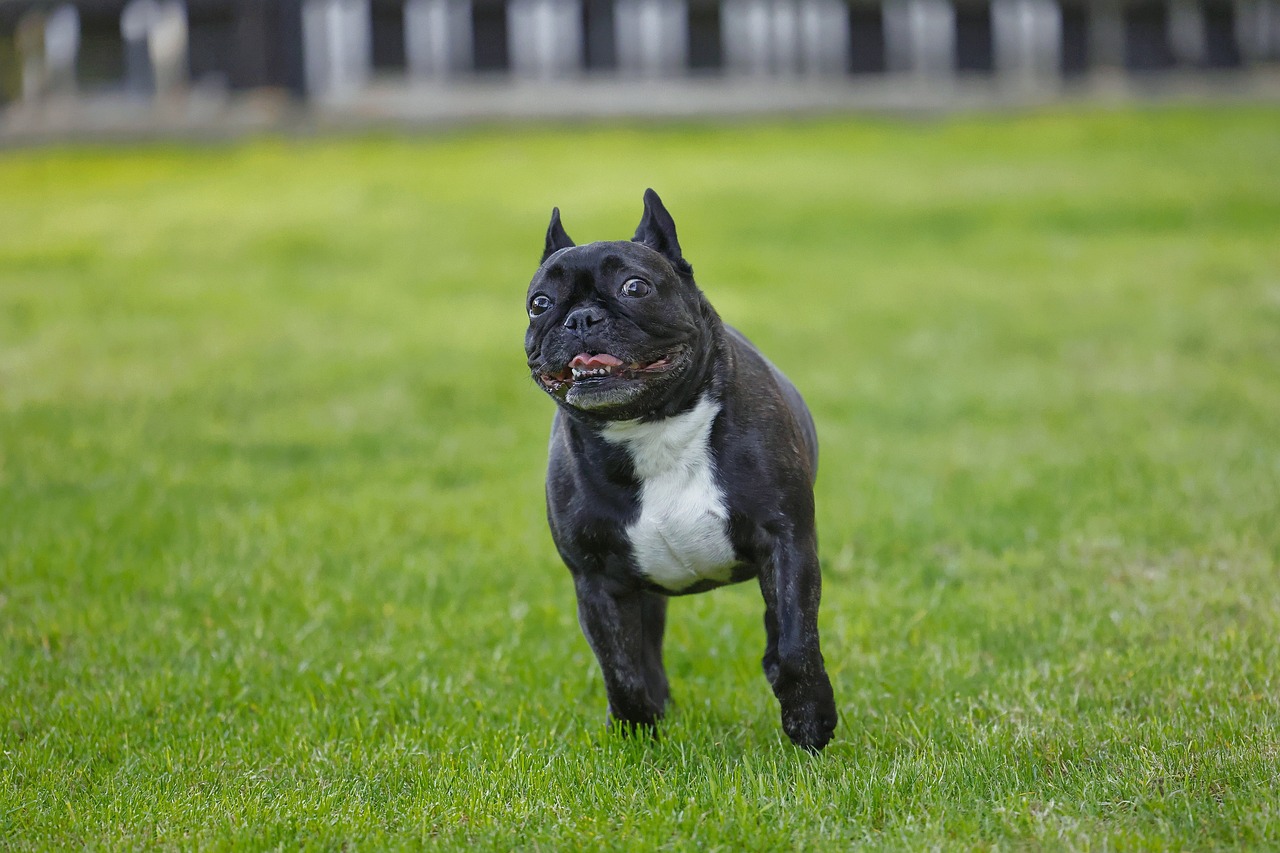
Bulldogs
are beloved for their unique appearance and calm demeanor, making them a popular choice for many families. However, owning a Bulldog comes with specific health challenges that owners should be prepared to manage. Understanding these issues is crucial for ensuring a long, happy life for your furry friend. Bulldogs are known for their distinctive wrinkled faces and stout bodies, but these features also make them susceptible to certain health problems.
One of the most significant health concerns for Bulldogs is related to their respiratory system. Due to their brachycephalic nature, Bulldogs often suffer from respiratory issues. This condition arises from their short snouts and compressed airways, which can lead to breathing difficulties, especially in hot weather or during strenuous activities. As a Bulldog owner, it’s essential to monitor your pet’s breathing and avoid exposing them to extreme temperatures. Regular vet check-ups can help identify any potential respiratory issues early on, allowing for timely intervention.
Another common issue Bulldogs face is skin fold dermatitis. The skin folds around their face and body can trap moisture and bacteria, leading to infections and discomfort. To prevent this, owners should regularly clean the folds with a gentle, vet-recommended cleanser. Additionally, keeping the skin dry and well-aired is vital. If you notice any signs of redness or irritation, it’s crucial to consult your veterinarian for advice on treatment options.
Here’s a quick overview of the common health issues Bulldogs may encounter:
| Health Issue | Description | Prevention/Treatment |
|---|---|---|
| Respiratory Issues | Breathing difficulties due to short snouts. | Avoid extreme temperatures; regular vet check-ups. |
| Skin Fold Dermatitis | Infections caused by moisture in skin folds. | Regular cleaning; consult vet for irritation. |
In addition to these specific health concerns, Bulldogs are also prone to obesity, which can exacerbate their existing health issues. Maintaining a healthy diet and ensuring regular exercise is essential. Bulldogs are not the most active breed, so owners need to be diligent about their weight management. A balanced diet tailored to their age, size, and activity level will go a long way in keeping them healthy.
In conclusion, while Bulldogs are incredible companions, their unique health needs require attention and care. By being proactive about their health and understanding the specific challenges they face, you can ensure that your Bulldog leads a happy and healthy life. Remember, regular veterinary visits and a keen eye for any changes in behavior or health are key to keeping your Bulldog thriving.
- What are the common health issues in Bulldogs? Bulldogs are prone to respiratory issues, skin fold dermatitis, and obesity.
- How can I prevent respiratory problems in my Bulldog? Avoid extreme temperatures and ensure regular vet check-ups.
- What should I feed my Bulldog? A balanced diet suited to their age, size, and activity level is essential.
- How often should I clean my Bulldog's skin folds? Regular cleaning is recommended to prevent infections.
Respiratory Issues
When it comes to Bulldogs, one of the most pressing health concerns is their tendency to suffer from . This is largely due to their brachycephalic nature, characterized by short noses and flat faces. While their adorable appearance makes them a favorite among dog lovers, this unique structure can lead to a range of breathing difficulties. Imagine trying to breathe through a straw – that’s how some Bulldogs feel on a daily basis!
These respiratory problems can manifest in various ways, from snoring to more severe conditions like brachycephalic obstructive airway syndrome (BOAS). Owners must be vigilant in monitoring their pets for signs of distress. Common symptoms include:
- Excessive panting, especially during mild exercise
- Labored breathing or wheezing sounds
- Fainting or lethargy during normal activities
Understanding these symptoms can be a lifesaver. If you notice your Bulldog struggling to breathe, it’s crucial to consult your veterinarian immediately. They can provide a thorough examination and recommend appropriate interventions, which may include lifestyle changes or even surgical options in severe cases.
To help manage and mitigate respiratory issues, here are some practical tips:
- Maintain a healthy weight: Obesity can exacerbate breathing problems, so keeping your Bulldog at a healthy weight is essential.
- Avoid extreme temperatures: Bulldogs are sensitive to heat and cold, so always ensure they are in a comfortable environment.
- Limit strenuous exercise: While regular activity is important, avoid overly strenuous activities that could lead to breathing difficulties.
Moreover, regular veterinary check-ups are vital. Your vet can help monitor your Bulldog’s respiratory health and suggest preventive measures tailored to their specific needs. Remember, a little extra care can go a long way in ensuring your furry friend lives a happy and healthy life.
Q: Why are Bulldogs prone to respiratory issues?
A: Bulldogs have a brachycephalic structure, which means their short noses and flat faces can obstruct airflow, leading to various breathing difficulties.
Q: What are the common signs of respiratory distress in Bulldogs?
A: Common signs include excessive panting, labored breathing, wheezing, and lethargy during normal activities.
Q: How can I help my Bulldog with respiratory issues?
A: Maintaining a healthy weight, avoiding extreme temperatures, and limiting strenuous exercise can help manage their respiratory health. Regular vet check-ups are also essential.
Skin Fold Dermatitis
Skin fold dermatitis is a common issue that many Bulldog owners face, primarily due to the breed's unique physical characteristics. Bulldogs have distinct skin folds that, while giving them their adorable appearance, can also create a perfect environment for bacteria and moisture to thrive. This can lead to irritation, inflammation, and infections if not properly managed. It's crucial for Bulldog owners to be proactive in caring for these folds to ensure their furry friends remain comfortable and healthy.
The folds of a Bulldog often trap dirt, moisture, and even food particles, making regular cleaning an essential part of their grooming routine. Neglecting these areas can result in a range of problems, including redness, swelling, and an unpleasant odor. In severe cases, the condition can worsen, leading to more serious infections that may require veterinary intervention. Therefore, understanding how to care for these skin folds is vital for any Bulldog owner.
To help prevent skin fold dermatitis, consider the following tips:
- Regular Cleaning: Use a damp cloth or specialized wipes to gently clean the folds at least once a week. This helps remove any buildup of dirt or moisture.
- Drying Thoroughly: After cleaning, ensure that the folds are completely dry. Moisture can exacerbate irritation and lead to infections.
- Monitor for Symptoms: Keep an eye out for signs of irritation, such as redness or excessive licking. Early detection is key to preventing more serious issues.
- Consult Your Vet: Regular check-ups with your veterinarian can help catch any developing skin conditions early and ensure your Bulldog receives the best care possible.
By implementing these simple yet effective practices, Bulldog owners can significantly reduce the risk of skin fold dermatitis. Remember, a little extra care goes a long way in keeping your Bulldog healthy and happy!
Q: What are the signs of skin fold dermatitis in Bulldogs?
A: Look for symptoms such as redness, swelling, odor, and excessive licking in the affected areas.
Q: How often should I clean my Bulldog's skin folds?
A: It's recommended to clean the folds at least once a week, or more frequently if they appear dirty or moist.
Q: Can skin fold dermatitis lead to more serious health issues?
A: Yes, if left untreated, it can lead to infections that may require veterinary treatment.
Q: What should I do if I notice signs of skin fold dermatitis?
A: Consult your veterinarian for advice and treatment options to address the condition effectively.

Poodles
Poodles are not just a pretty face; they are highly intelligent and versatile dogs that come in three sizes: standard, miniature, and toy. This breed is renowned for its elegance and grace, but what many potential owners may overlook are the unique health needs that come with owning a Poodle. Understanding these needs is essential for ensuring that your furry friend lives a healthy, happy life. Just like any other breed, Poodles can face certain health challenges, so being informed is key.
One of the most common health issues in Poodles is joint problems. Larger varieties, particularly standard Poodles, may be more susceptible to conditions like hip dysplasia or luxating patellas. These issues can lead to discomfort and mobility problems, which is why it’s crucial to keep an eye on their activity levels and weight. Regular veterinary check-ups can help catch any joint issues early, allowing you to take proactive measures.
Another condition that Poodle owners should be aware of is hypothyroidism. This hormonal disorder can affect a Poodle's energy levels and weight, leading to lethargy and other health complications. Regular health screenings are vital for early diagnosis and management of this condition. If you notice your Poodle becoming less active or gaining weight unexpectedly, it’s worth discussing with your vet.
To ensure your Poodle remains healthy, it’s important to focus on a few key areas:
- Diet: A balanced diet tailored to your Poodle's size and age is crucial. Consult with your vet to determine the best food options.
- Exercise: Regular exercise is essential for maintaining a healthy weight and promoting joint health. Aim for daily walks and playtime.
- Grooming: Poodles require regular grooming to keep their coats in top condition and to prevent skin issues. This also allows for early detection of any skin problems.
In conclusion, owning a Poodle can be a rewarding experience, but it's essential to stay informed about their specific health needs. By being proactive about their care, you can help ensure that your Poodle lives a long and fulfilling life. Whether you choose a standard, miniature, or toy Poodle, understanding their unique health requirements will allow you to provide the best possible care.
| Question | Answer |
|---|---|
| What are the common health issues in Poodles? | Poodles can suffer from joint issues, hypothyroidism, and skin conditions. Regular vet check-ups are essential for early detection. |
| How often should I groom my Poodle? | Poodles should be groomed every 4 to 6 weeks to maintain their coat and prevent matting. |
| What type of diet is best for Poodles? | A balanced diet that meets their nutritional needs based on size and age is recommended. Consult your vet for specific recommendations. |
| Do Poodles require a lot of exercise? | Yes, Poodles are active dogs that require regular exercise to maintain their health and prevent obesity. |
Joint Issues
Poodles, especially the larger varieties, are known for their intelligence and versatility, but they come with a set of unique health concerns that deserve careful attention. One of the most prevalent issues faced by Poodles is joint problems. As they age, these dogs may experience discomfort due to conditions like arthritis or hip dysplasia. This can significantly impact their quality of life, leading to decreased mobility and increased pain.
Joint issues in Poodles can stem from various factors, including genetics, weight, and activity levels. Regular veterinary check-ups are essential to catch any potential problems early. If you notice your Poodle showing signs of discomfort, such as limping, difficulty climbing stairs, or reluctance to play, it’s crucial to consult your veterinarian. They can provide a proper diagnosis and recommend a treatment plan tailored to your furry friend’s needs.
To help mitigate the risks of joint issues, here are some proactive measures you can take:
- Maintain a Healthy Weight: Obesity can exacerbate joint problems, so keeping your Poodle at a healthy weight is vital. Regular exercise and portion control in their diet can help achieve this.
- Provide Joint Supplements: Consult your vet about joint supplements such as glucosamine and chondroitin, which can support joint health and mobility.
- Regular Exercise: While it’s essential to keep your Poodle active, be mindful of the type and intensity of exercise. Low-impact activities, like swimming or gentle walks, can be beneficial without putting too much strain on their joints.
Moreover, creating a comfortable living environment can also make a significant difference. Soft bedding, easy access to favorite spots, and minimizing stairs can help your Poodle navigate their home comfortably. Remember, the goal is to ensure that your Poodle remains active and happy while managing their joint health effectively.
1. What are the signs of joint issues in Poodles?
Look for signs like limping, stiffness, reluctance to jump, or changes in behavior such as decreased activity levels. If you notice any of these symptoms, consult your veterinarian.
2. Can joint issues in Poodles be prevented?
While some joint issues may be genetic, maintaining a healthy weight, providing regular low-impact exercise, and incorporating joint supplements can help reduce the risk.
3. What treatments are available for joint problems?
Treatment options may include medications, physical therapy, weight management, and in some cases, surgery. Your veterinarian will recommend the best course of action based on your Poodle's specific condition.
4. How often should I take my Poodle to the vet for check-ups?
Regular check-ups are recommended at least once a year, but if your Poodle is older or has existing health issues, more frequent visits may be necessary.
Hypothyroidism
Hypothyroidism is a condition that can affect Poodles, especially as they age. This health issue occurs when the thyroid gland doesn't produce enough hormones, which are crucial for regulating metabolism, energy levels, and overall health. Imagine your body as a car; without the right amount of fuel, it simply won't run efficiently. In dogs, this lack of thyroid hormones can lead to a range of symptoms that may impact their quality of life.
One of the most noticeable signs of hypothyroidism in Poodles is a significant change in their energy levels. Owners may observe their once playful and energetic Poodle becoming lethargic and less interested in activities they once loved. Additionally, weight gain can occur even if their diet and exercise routine remain unchanged. This can be perplexing for many dog owners, who might wonder why their furry friend is gaining weight despite no change in lifestyle.
Other symptoms of hypothyroidism can include:
- Dry or flaky skin: Poodles may develop skin issues, leading to discomfort and irritation.
- Hair loss: Noticeable thinning of their coat, particularly around the tail and back.
- Cold intolerance: Poodles may seem to be more sensitive to cold temperatures.
Recognizing these symptoms early is vital. If you suspect your Poodle may be suffering from hypothyroidism, a visit to the veterinarian for a blood test is essential. This test measures the levels of thyroid hormones in the body and can confirm whether hypothyroidism is the underlying issue.
Fortunately, hypothyroidism is manageable with proper treatment. Typically, veterinarians prescribe a synthetic thyroid hormone replacement, which can help restore normal hormone levels. This treatment is usually lifelong, but with consistent medication, many Poodles can lead happy, active lives. Regular vet check-ups are crucial to monitor hormone levels and adjust dosages as necessary, ensuring your furry friend stays in tip-top shape.
In summary, being aware of the signs of hypothyroidism in Poodles can make a significant difference in their health and happiness. As a responsible dog owner, staying informed and proactive about your pet's health can lead to a longer, healthier life together.
1. What are the common signs of hypothyroidism in Poodles?
Common signs include lethargy, weight gain, dry skin, hair loss, and increased sensitivity to cold.
2. How is hypothyroidism diagnosed in dogs?
A veterinarian will perform a blood test to measure thyroid hormone levels to diagnose hypothyroidism.
3. Can hypothyroidism be treated?
Yes, it can be treated with synthetic thyroid hormone replacement therapy, which is typically lifelong.
4. How often should my Poodle be checked for hypothyroidism?
Regular veterinary check-ups are essential, especially as they age, to monitor hormone levels and adjust treatment as needed.
Frequently Asked Questions
- What are the common health issues in Labrador Retrievers?
Labrador Retrievers are generally healthy, but they can be prone to obesity, hip dysplasia, and certain eye conditions. Regular vet check-ups and a balanced diet can help mitigate these risks.
- How can I prevent hip dysplasia in German Shepherds?
To prevent hip dysplasia, ensure your German Shepherd maintains a healthy weight through a balanced diet and regular exercise. Early detection is key, so keep an eye out for symptoms like limping or difficulty standing.
- What should I do if my Beagle is overweight?
If your Beagle is overweight, consult your veterinarian for a tailored diet and exercise plan. Reducing treats and increasing activity can help your furry friend shed those extra pounds.
- Are Bulldogs prone to any specific health conditions?
Yes, Bulldogs often face respiratory issues due to their brachycephalic structure and skin fold dermatitis. Regular vet visits and proper care can help manage these conditions effectively.
- What health screenings should I consider for Poodles?
Poodles should undergo regular health screenings for joint issues and hypothyroidism, especially as they age. Keeping up with these check-ups can lead to early detection and better management of any health problems.
- How often should I take my dog to the vet?
It's recommended to take your dog to the vet at least once a year for a routine check-up. However, older dogs or those with specific health issues may need more frequent visits.
- What signs indicate my dog might have a health issue?
Common signs that your dog may have a health issue include changes in appetite, excessive thirst, lethargy, limping, or unusual behavior. If you notice any of these, it's best to consult your veterinarian.
- Can I manage my dog's health needs at home?
While some aspects of your dog's health can be managed at home, such as diet and exercise, regular veterinary check-ups are essential for professional assessments and treatments. Always consult your vet for specific concerns.





